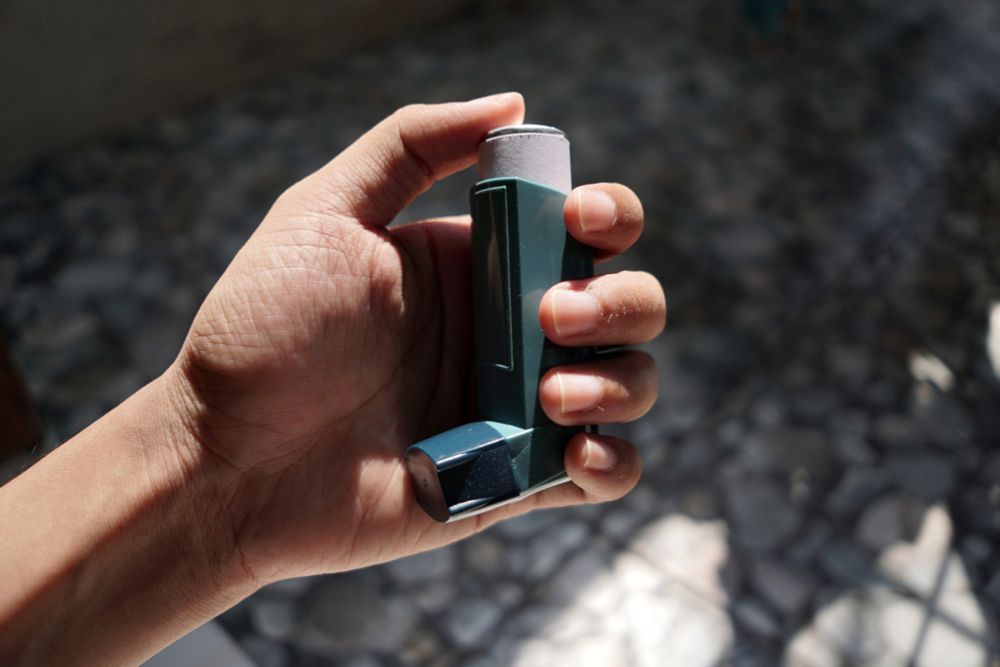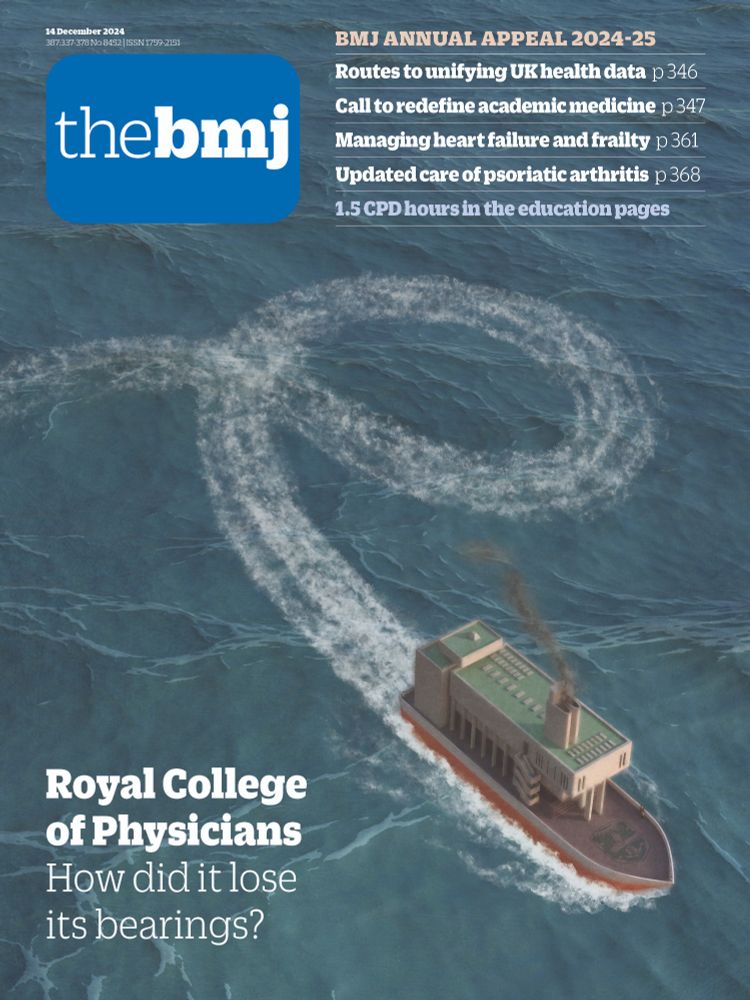
Independent Article
Patent Thickets and Product Hops: Challenges and Opportunities for
Legislative Reform
William B. Feldman
Brigham and Women’s Hospital and Harvard Medical School
Abstract
Two key strategies that brand-name pharmaceutical manufacturers employ to limit generic competition are patent thickets and product hops.
The former strategy entails obtaining numerous patents on peripheral features of products (not just the active ingredients), and the latter
involves shifting active ingredients into reformulations with new patent protection that can extend periods of market exclusivity. These
strategies have become particularly problematic for drug-device combinations like inhalers and glucagon-like peptide-1 receptor agonists,
which contain pharmaceutical compounds that are sold together with their delivery devices. The Senate Judiciary Committee moved three
bipartisan bills out of committee during the last legislative session aimed at facilitating more timely generic competition. Although these bills
offer a valuable step forward, more is needed to limit the sort of patent gamesmanship that has become pervasive in the US pharmaceutical
industry. Such reforms should include routine reexamination by the US Patent and Trademark Office of patents submitted for listing with the
Food and Drug Administration (FDA), a greater role for the FDA in reviewing such listings, limits on the number of patents that brand-name
firms can assert when suing for infringement following patent challenges, stronger incentives for patent challenges, and more flexibility for the
FDA to approve complex generic drugs.
Keywords: patent thickets; product hops; inhaler; GLP-1 receptor agonist; Food and Drug Administration
New on FirstView: "Patent Thickets and Product Hops: Challenges and Opportunities for Legislative Reform" by @wbfeldman.bsky.social explains the strategies pharmaceutical manufacturers use to limit generic competition — and how to overcome them. #GenericDrugs
www.cambridge.org/core/journal...
30.04.2025 15:34 — 👍 1 🔁 1 💬 0 📌 0
So, even if you are unwilling to trade environmental benefit for cost, which I definitely get, the choice will not even exist in these types of cases, which is all very frustrating!
28.02.2025 14:59 — 👍 1 🔁 0 💬 0 📌 0
So there will only be the expensive version of Breztri (with longer patent protection and slower generic competition).
And this will be bad for patients, much like the CFC-to-HFA transition.
28.02.2025 14:59 — 👍 1 🔁 0 💬 1 📌 0
Breztri is a good example. Will likely be the first MDI with a novel propellant in the US. AstraZeneca will pull the older version once the newer one is released for financial rather than regulatory reasons (with no ban on the horizon).
28.02.2025 14:59 — 👍 1 🔁 0 💬 1 📌 0
I hear you. I think keeping prices down is absolutely a priority--and sadly not where we are headed. The switch to novel propellants will be so lucrative for manufacturers and, in a some cases, there will be no lower-cost version that remains on the market.
28.02.2025 14:59 — 👍 1 🔁 0 💬 1 📌 0
Key message here is that there is actually little conflict between good care and the environment. The most effective asthma care is also best for the environment.
-reduces the need to use reliever medication
-reduces the number of acute exacerbations
www.nice.org.uk/news/article... #RespEd #LungSky
22.02.2025 13:02 — 👍 5 🔁 6 💬 0 📌 0
Thanks as ever to Gregg Furie for his work and collaboration on these issues.
22.02.2025 12:47 — 👍 0 🔁 0 💬 0 📌 0
But one thing is clear: Only structural reform, and not individual decisions by even committed physicians, can ensure that patients with chronic respiratory disease have access to safe, effective, sustainable, and affordable therapy.
22.02.2025 12:47 — 👍 1 🔁 0 💬 1 📌 0
There are no easy answers here. We discuss some policy solutions in the piece.
22.02.2025 12:47 — 👍 1 🔁 0 💬 1 📌 0
...Loss of product exclusivity through patent expiration currently poses a much greater risk to revenue than climate related risks.” As with the last propellant transition, patients may be caught in the middle.
22.02.2025 12:47 — 👍 1 🔁 0 💬 1 📌 0
Here’s how AsraZeneca described the financial upside it sees: “Transitioning to new low GWP propellants as part of our Ambition Zero Carbon strategy will mitigate the financial risks posed to our MDI-based respiratory portfolio (e.g. Symbicort)…
22.02.2025 12:47 — 👍 1 🔁 0 💬 1 📌 0
New low carbon-inhalers are now under development, but these will be expensive and may be on-patent into the 2030s/2040s. Manufacturers earned billions from the last propellant transition (CFCs to HFAs) and could earn even more during this next round.
22.02.2025 12:47 — 👍 1 🔁 0 💬 1 📌 0
Many also have links to the tobacco industry; Phillip Morris International purchased an inhaler manufacturer in 2020 despite uproar by physicians.
22.02.2025 12:47 — 👍 1 🔁 0 💬 1 📌 0
Metered-dose inhalers are potent greenhouse gas emitters. Dry powder inhalers are better for the environment but are not suitable for all patients and not always available on formularies.
22.02.2025 12:47 — 👍 0 🔁 0 💬 1 📌 0

Glucose-Lowering Medications and Risk of Chronic Obstructive Pulmonary Disease Exacerbations in Patients With Type 2 Diabetes, JAMA Internal Medicine.
🔎 New in JAMA IM: Avik Ray, @wbfeldman.bsky.social & colleagues assess the comparative effectiveness of diabetes drugs in COPD patients.
They find GLP-1s & SGLT-2s are associated with lower risks of moderate or severe COPD exacerbations vs. DPP-4s during follow-up: jamanetwork.com/journals/jam...
11.02.2025 16:12 — 👍 2 🔁 1 💬 0 📌 0

Democrats can win back some of the public’s trust by building an agenda around game-changing ideas *if* they address systemic issues like patent abuse at their root, rather than continuing to settle for legislation that is watered down and incremental at best. 1/8
🔗 www.nytimes.com/2025/02/01/o...
05.02.2025 00:05 — 👍 5 🔁 2 💬 1 📌 0

🚨 Just out today (online)! 🚨
Our results show that a common argument against #QALYs (based on the use of subgroup analyses) is not justified with empirical data.
With co-authors: @leah-rand.bsky.social , @wbfeldman.bsky.social, & @akesselheim.bsky.social from @portalresearch.org.
31.01.2025 20:11 — 👍 10 🔁 7 💬 1 📌 0
Great to work on this piece with Samy Suissa, @akesselheim.bsky.social. Jerry Avorn, Max Russo, Sebastian Schneeweiss, and Shirley Wang. @portalresearch.org
30.12.2024 14:31 — 👍 1 🔁 0 💬 0 📌 0
Particularly given the added climate impact of metered-dose inhalers, health systems designing formularies and setting treatment guidelines may consider steps to increase use of fluticasone-umeclidinium-vilanterol relative to budesonide-glycopyrrolate-formoterol.
30.12.2024 14:31 — 👍 2 🔁 0 💬 1 📌 0
We found that budesonide-glycopyrrolate-formoterol was associated with a slightly higher incidence of moderate or severe COPD exacerbations compared to fluticasone-umeclidinium-vilanterol in patients with COPD treated in routine clinical care.
30.12.2024 14:31 — 👍 0 🔁 0 💬 1 📌 0
There are two single-inhaler triple therapies available in the US: one a metered-dose inhaler (budesonide-glycopyrrolate-formoterol, Breztri Aerosphere) and the other a dry powder inhaler (fluticasone-umeclidinium-vilanterol, Trelegy Ellipta).
30.12.2024 14:31 — 👍 0 🔁 0 💬 1 📌 0

A Hidden Contributor to Climate Change — Asthma Inhalers
The U.S. health care system could reduce emissions from asthma inhalers and mitigate their negative impact on population health.
By way of background: Metered-dose inhalers are associated with 20-times the greenhouse gas emissions as dry powder inhalers--with emissions in the US equivalent to roughly 550,000 cars on the road each year.
www.commonwealthfund.org/blog/2023/hi...
30.12.2024 14:31 — 👍 0 🔁 0 💬 1 📌 0
Pre-holiday PPV: Fed Circuit in Teva v Amneal follows recommendation in amicus brief written by @wbfeldman.bsky.social and Sean Tu of @portalresearch.org, affirming delisting of improper inhaler patents from OB and helping promote timely generic competition: fedcircuitblog.com/wp-content/u...
21.12.2024 15:54 — 👍 4 🔁 1 💬 0 📌 0
Research Specialist @ PORTAL
Pulmonary & Critical Care physician, ICU outcomes researcher bridging Critical Care Medicine & Geriatrics @YalePCCSM, mom. #MedSky #EpiSky #AcademicSky #ICUSky Views my own
Life, death and the ICU
Substack : PulmCCM.org
Medical doctor working on environmental issues across healthcare.
'Environmentally Sustainable Primary Care' book out now
Executive Vice President for Health Policy, KFF. Cal Bear.
https://www.kff.org/person/larry-levitt/
Emergency physician. Advocate for low-emissions, resilient healthcare, and climate-health solutions. Boy and dog mom. Plant-based diet follower. Healthy planet = healthy people. 🌎
PCCM fellow at Brigham and Women's. Vanderbilt med-peds graduate. Interested in adolescents and young adults with chronic lung disease.
The Journal of Law, Medicine & Ethics (JLME) is a leading peer-reviewed journal for research at the intersection of law, health policy, ethics, and medicine.
General internist & researcher @pittgim.bsky.social + VA Pittsburgh + @pittcp3.bsky.social | Associate Editor JAMA Internal Medicine | Beeson Scholar | www.prescribingwiselylab.org
🫁 & ICU doctor | director, inpatient medicine & critical care @partnersinhealth.bsky.social | he/him | opinions my own
Welcome to the official Bluesky account for the New England Journal of Medicine!
Follow us for high-quality, peer-reviewed research and clinical content from the world’s leading medical journal and website (NEJM.org).
☀️ Pulm/CCM doctor, writer, teacher, concerned citizen. Oakland/Berkeley, CA ☀️
Latina pediatric lung doc, fierce advocate for diversity, equity and inclusion. Strong and powerful women rock. Science saves lives. #FinsUp. My opinions are my own. 🌈🫁
Chief of Pulmonary and Critical Care Medicine at Mass General Brigham. Sepsis and ARDS investigator. Philly kid. (Go Birds.) D’97. Pitt Med. Osler Marine: Barker resident, Longcope ACS. Formerly at Denver Health, University of Colorado.
Pulmonary/CCM Associate Professor at the Johns Hopkins - TEDx https://youtu.be/Bs83pow-Mvw - Husband and Girl Dad
New England's leading source for breaking news and analysis.
bostonglobe.com











